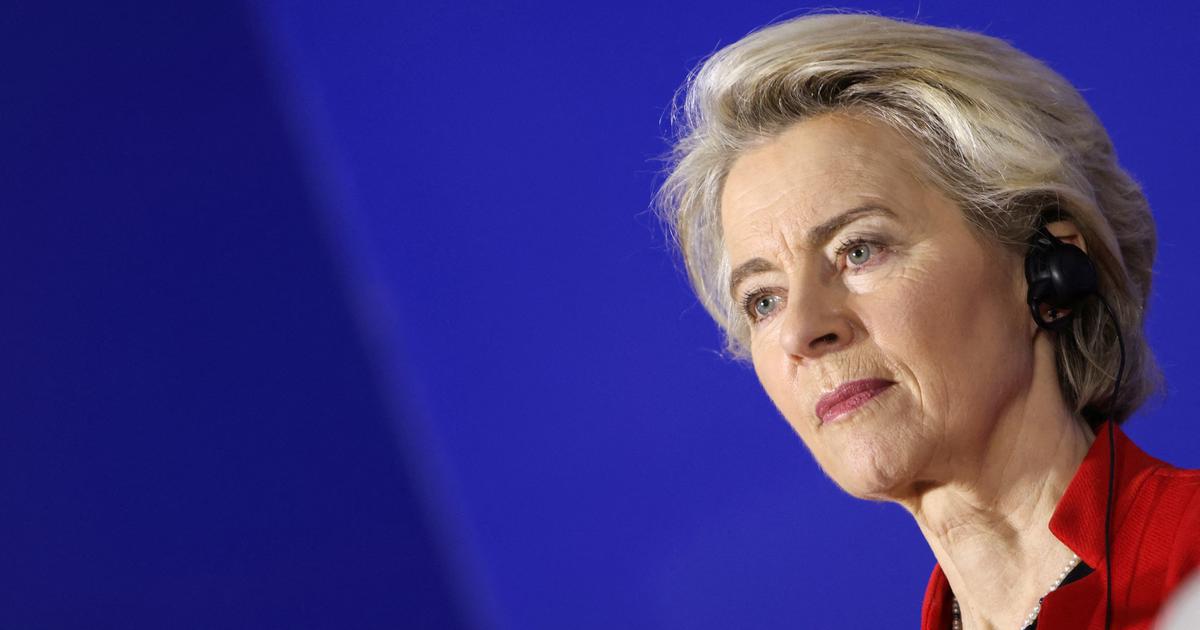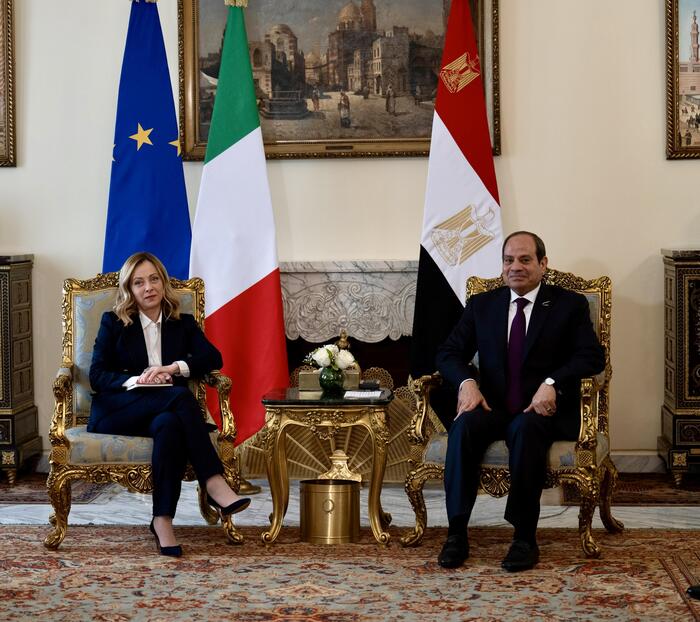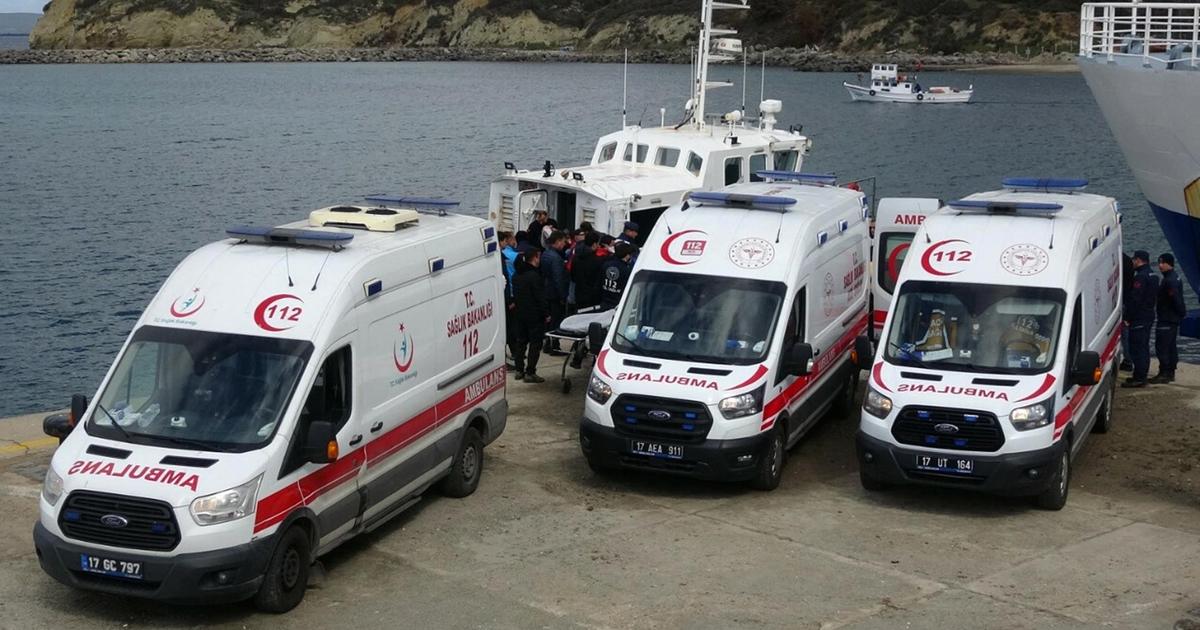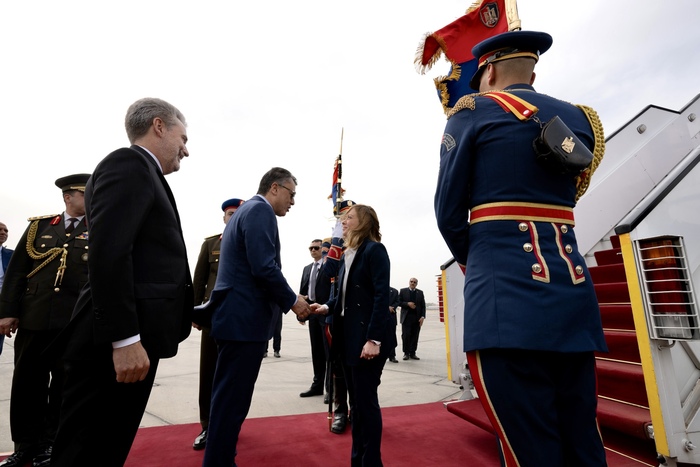On the morning of October 25, the Alarm Phone organization, dedicated to supporting migrants crossing the Mediterranean towards Europe, was alerted that two boats with more than 1,300 individuals on board had left the coast of Tobruk, in eastern Libya, and that they were adrift in the search and rescue zone of Italy and Malta.
By afternoon, their situation had become virtually untenable, with some 12 people dead or unconscious.
But it was not until more than 15 hours after reporting the shipwreck that the Italian authorities carried out a salvage operation;
one of the largest that Alarm Phone has ever attended in its eight years of activity.
Many of those on those two boats came from Egypt:
Until this November, more than 18,000 Egyptians had arrived in Italy by sea, making them the first nationality among those who have entered the European country by this route.
According to a spokesman for the UN refugee agency (UNHCR), the figure represents an increase of more than 220% compared to the same period last year.
Given this increase in arrivals, on October 30, Brussels and Cairo announced a project to strengthen the operational capacities of the Egyptian Coast Guard and Border Guard.
According to an EU spokeswoman, the plan has a budget of 80 million euros and will be carried out in two phases.
The first, endowed with 23 million, will already cover this year the delivery of search and rescue vessels, as well as civil border surveillance equipment.
The second, which is being negotiated, is scheduled for 2023. This is the first cooperation of its kind between the European Commission and Egypt.
After a boat with hundreds of people on board sank off the coast of Egypt in 2016 and claimed more than 200 lives, Cairo began to prevent departures from its territory with its characteristic heavy hand.
In parallel, the country has also been consolidating as a key player in the externalization of borders adopted in recent years by the EU and its Member States, especially with the countries of the southern Mediterranean.
Although the reasons for the pronounced increase in departures of Egyptians vary from case to case, a researcher from the Platform for Refugees in Egypt (RPE) indicates on condition of anonymity that the poor state of the national economy and, above all, , the stagnant political situation in the country, with the consequent absence of hope and prospects for a dignified future, are two of the main drivers.
Lack of clarity
Human rights groups and members of the European Parliament have raised concerns about the new Brussels program over a lack of clarity surrounding the funding plan and the Egyptian authorities' record of abuses.
"We still do not know what effects this new agreement is going to have, but we have already been able to see what the previous ones have caused, which is an enormous number of violations that have gone uninvestigated and without accountability," says the RPE source.
Some of these organizations warn that the lack of criticism from Brussels and its increasing collaboration with Cairo encourage the continued violation of rights at the borders and within the country.
Groups such as the RPE point out that, despite some legislative changes, the Egyptian authorities continue to apply a 2014 presidential decree that defines large areas adjacent to its borders as military zones.
“They are a black hole, like the detention centers.
No one can know what happens there: NGOs are not allowed to enter, no national or international monitoring, nor can reports be made ”, alerts a second source from the RPE who does not want to reveal his identity for security reasons.
Between 2016 and mid-2021, the Egyptian army announced the detention of more than 80,000 irregular migrants without ever clarifying what happened to them, as documented by the RPE.
Egypt has recently deported dozens of Eritrean refugees who have been lost on arrival in Asmara.
And in 2021, the French
outlet Disclose
revealed, after obtaining hundreds of classified documents, a secret operation by the Egyptian army in the western desert of the country that, under the pretext of the fight against terrorism, targeted smuggling routes and irregular migration.
The RPE has also documented the arbitrary detention of migrants in various cities across the country.
The European Commissioner for Neighborhood Policy and Enlargement, Olivér Várhelyi, appointed in 2019 at the request of the ultra-conservative Hungarian Prime Minister Viktor Orbán, stated in August that a risk assessment would be carried out prior to the new program with Egypt.
And both he and the aforementioned Commission spokesperson ensure that the use of the equipment and the implementation of the plan will be monitored so that the rights of migrants and refugees are respected.
Despite those claims, the result of any risk assessment has not yet been made public, nor is the scope of the announced monitoring clear.
Another element of the agreement that raises doubts is the expected role of the Coast Guard, since, officially, no Egyptian who has arrived on Italian soil this year has boarded in Egypt.
According to the UNHCR spokesman, Libya has been the country of departure for nine out of 10 Egyptians arriving in Italy, followed by Turkey (9%) and Tunisia (1%).
Maurice Stierl, a member of the Alarm Phone network, further explains that since the end of October they are recording an unusually high number of large vessels, with between 300 and 600 people on board, leaving eastern Libya.
Many of them are Egyptian.
As of summer, the International Organization for Migration (IOM) estimated that there were at least 144,500 Egyptian migrants in Libya, according to Julia Black, head of the Missing Migrants project.
Black also points out that, as of November, some 2,900 Egyptians had been intercepted at sea by the Libyan authorities.
The Egyptian authorities, for their part, have repeatedly boasted that no migrant ships have left their shores since 2016, although UNHCR has documented that a small minority of Egyptians arriving in Italy have left the coast of this African country. .
The new EU program suggests a questioning of the official version of Cairo, but when cross-examined on the matter, the spokeswoman for the European Commission did not answer.
Although EL PAÍS has contacted the Egyptian Ministry of Foreign Affairs and the National Coordinator for the Combat and Prevention of Illegal Migration and Human Trafficking, they have not received a response either.
Concern about the role of the Coast Guard has also increased because, in late September, a group of 23 migrants, mostly Egyptians, adrift in the search and rescue region of Malta, were returned to Egypt after a rescue operation, according to four organizations active in maritime rescue.
“It was the first time we were able to document that Malta somehow intervened by instructing the commercial ships involved in disembarking the survivors in Egypt, which was over 500 nautical miles away, while Malta and Italy were only 150. Obviously, this goes against international conventions,” says Juan Matías Gil, coordinator of the rescues in the Central Mediterranean Sea for Doctors Without Borders.
Follow all the international information on
and
, or in
our weekly newsletter
.
Subscribe to continue reading
Read without limits
Keep reading
I'm already a subscriber




/cloudfront-eu-central-1.images.arcpublishing.com/prisa/RYPA5FRAZ3W4EBDJLA3A5T2ZBI.jpg)



/cloudfront-eu-central-1.images.arcpublishing.com/prisa/WSGIPYQJ3ZBJBLTWACM5ZX2QGA.jpg)


/cloudfront-eu-central-1.images.arcpublishing.com/prisa/KMEYMJKESBAZBE4MRBAM4TGHIQ.jpg)



